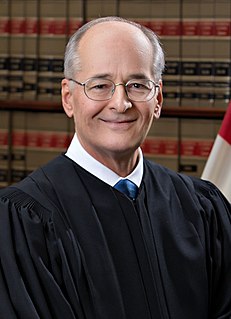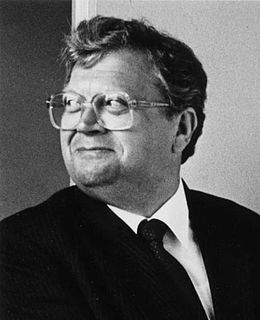A Quote by Richard Painter
The course I teach, Professional Responsibility, was brought into law-school curriculums and required by most states for admission to the bar beginning in the 1970s.
Related Quotes
If some individuals contribute to general social deterioration by overproducing children, and if the need is compelling, they can be required by law to exercise reproductive responsibility — just as they can be required to exercise responsibility in their resource-consumption patterns — providing they are not denied equal protection
I did one year of school and I was doing correspondence school, which was actually another happy accident. Correspondence school is basically home school, but you teach yourself instead of your parents teaching you. I found that to be one of the most important things in my life is that I learned how to teach myself things. I feel like that's something that schools should actually teach.
We might have, with Hockey Canada, an Aero Bar, a chocolate bar. 'Okay we're going to play for this chocolate bar.' Here you have guys who made millions of dollars, they're professional athletes, and they will fight tooth and nail to win. It's not necessarily for the chocolate bar. It's the competitive spirit.
The term "genocide" is often incorrectly assumed to mean extreme examples of mass murder associated with war, with the death of millions of individuals, as, for instance in Cambodia. Although clearly the Holocaust was the most extreme of all genocides, the bar set by the Nazis is not the bar required to be considered genocide. Most importantly, genocide does not have to be complete to be considered genocide.
Here in Washington State, I've supported efforts to provide our law enforcement with the proper training and resources required to meet their changing and demanding needs of their job. In doing so, I feel that the community and the law enforcement relationship will gratefully benefit from a renewed sense of responsibility and accountability.




































